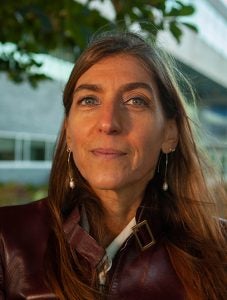
GSO is a world leader in oceanographic research, education, and marine resource management. More than ever, Earth and its inhabitants need the deep, sophisticated understanding of the ocean that our faculty, researchers and students produce. The scale and urgency of research conducted at GSO, and its global impact, belies the appearance of a tranquil college campus.
Combating the effects of contaminants, plastics, and pollutants on our blue economy, tracking “blue” carbon’s movements through coastal wetlands, marshes, and seagrasses, developing novel robotics for un-crewed sampling of the ocean’s twilight zone, mapping and characterizing the seafloor, modeling hurricane dynamics, enhancing coastal resilience to climate change, studying ecology in environments from estuaries to deep-sea hydrothermal vents, promoting sustainable seafood and safe aquaculture.…literally, the list goes on.
It has never been more relevant or necessary to generate new marine knowledge and prepare the next generation of oceanographers and explorers. Here in the Ocean State, a community of professors, scientists, staff, and students continues the tradition of comprehending the ocean and sheds light on this complex, rapidly changing, unseen world. We continue to invest in their success.
This was Year Two for the Ocean Exploration Cooperative Institute (OECI), which operates out of URI and comprises the strengths of four partners—Ocean Exploration Trust, the University of New Hampshire, the University of Southern Mississippi with Tuskegee University, and Woods Hole Oceanographic Institution. Exploration of the U.S. Exclusive Economic Zone ramped up, while planning and research continued for even more ambitious missions in Year Three. It’s truly an honor to host this collaboration with NOAA and to welcome OECI’s talented leadership and partners. We’re all inspired as OECI marshals the scientific prowess and technological development to reveal and study vast swaths of the world’s ocean.
A community of professors, scientists, staff, and students continues the tradition of comprehending the ocean and sheds light on this complex, rapidly changing, unseen world. We continue to invest in their success.
2021 also marked the 60th anniversary of this school’s founding. What began with Charles and Marie Fish working out of URI’s Narragansett Marine Lab, has become a world-renowned oceanographic institution that has awarded more than a thousand advanced degrees. To celebrate, GSO dedicated the year to observing several seminal events that transpired throughout its history. GSO’s history is replete with fascinating deeds accomplished by fascinating characters—true “forces of nature.” By re-telling our stories [See these Web pages] of friends, colleagues and mentors, and appreciating their contributions to ocean science, we gain perspective on what GSO is today, and what it can become tomorrow.
Yet 2020 and 2021 will be most remembered for how GSO and the Narragansett Bay Campus community persevered and pivoted during the COVID-19 pandemic. There is no question that many of us had to put our bold expectations and goals for the future on hold to weather the storm of the novel coronavirus pandemic. Its ripple effects and disruptions to operations—from research cruises, to work in the laboratories, to teaching—cannot be overstated. Fortunately, URI offers a wide array of counseling and support services to promote a balanced life founded on wellness. I’m taking every opportunity to urge faculty, students and staff to avail themselves of these options and to make their own well-being a priority.
The extraordinary effort required to meet pre-pandemic commitments and maintain high standards for research and learning is taking a toll on individuals. However, the Graduate School of Oceanography has also taken a moment to look inward and reflect on who we are and who we want to be. And, since we’ve been back on campus, enthusiasm around GSO and for all that we do has been unmatched. From our new URI President, Marc Parlange—his interest in oceans, health and all sectors of our blue economy—to numerous visits by elected officials and more than 2,000 guests on “Science Saturday.” The excitement for oceans and science is palpable.
Much as it is my privilege to serve as the sixth dean of this graduate school (and my alma mater), I’m pleased to share with you this overview of just one year in the storied history of GSO. Please enjoy and be well.
With best regards,
Paula S. Bontempi, Ph.D.
Dean, University of Rhode Island
Graduate School of Oceanography
